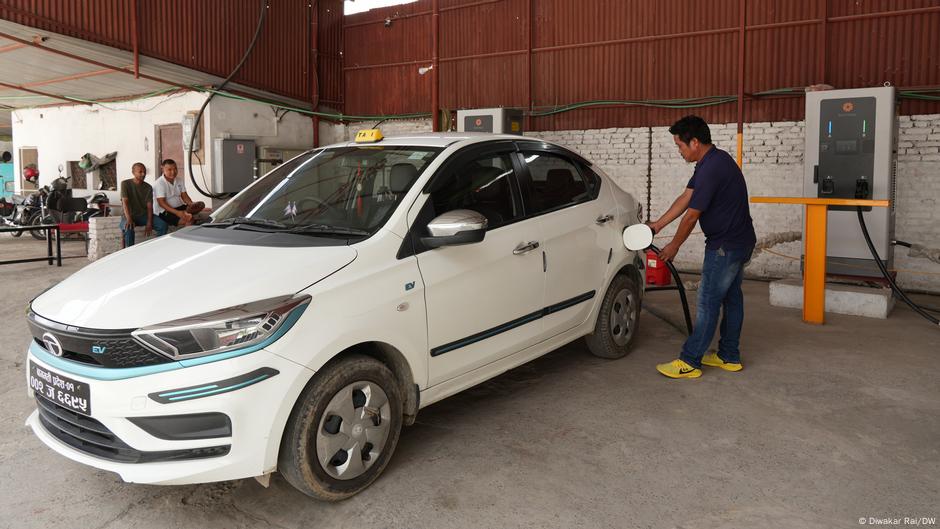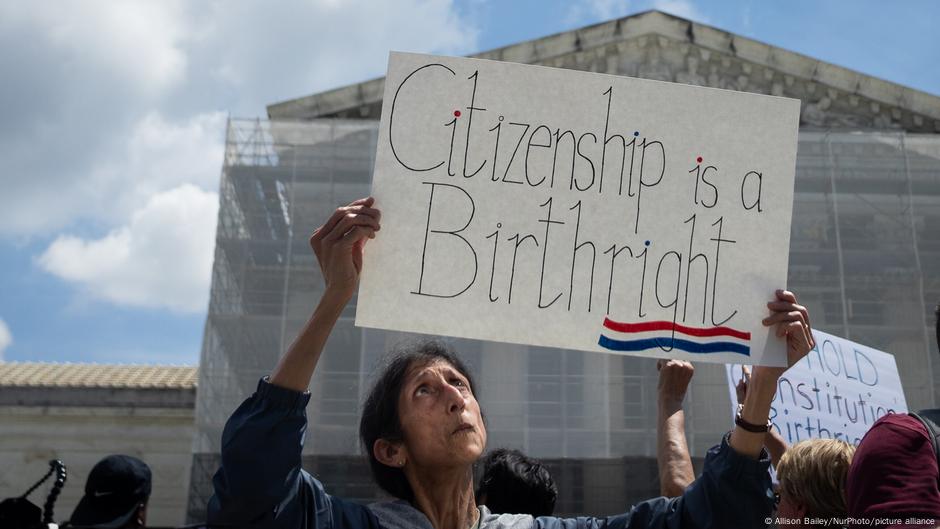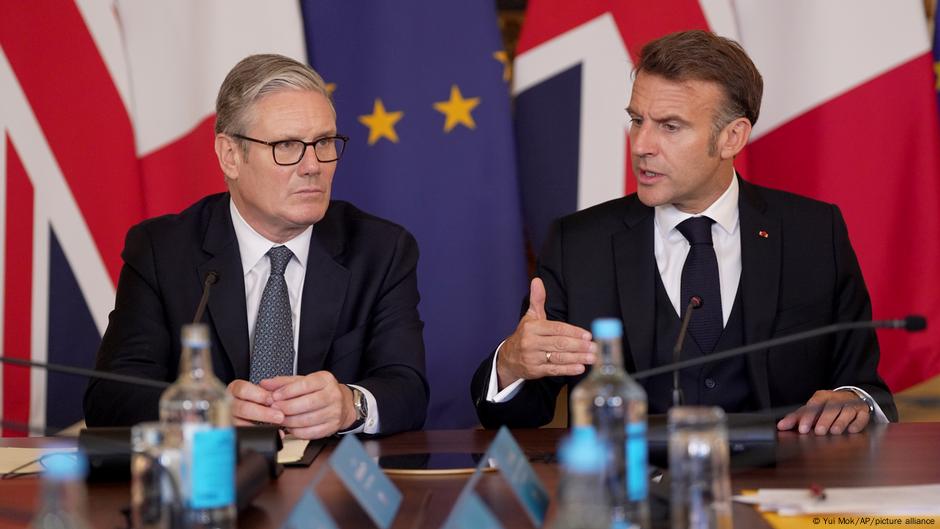Sursa: DW
Category: International
-
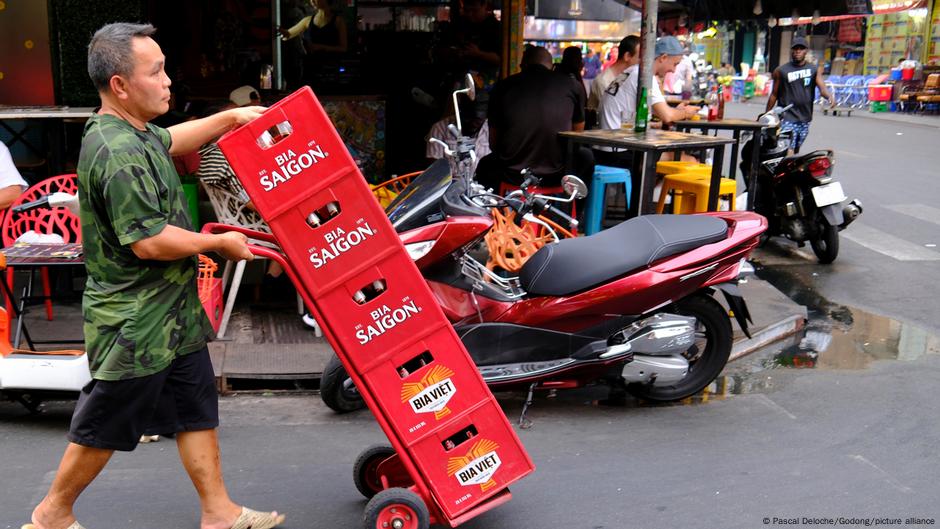
De ce ia Vietnamul măsuri drastice împotriva alcoolului?
Creșterea impozitelor vine pe fondul îngrijorărilor tot mai mari din cadrul Partidului Comunist de guvernământ cu privire la consumul excesiv de alcool în Vietnam, autoritățile încă întâmpină dificultăți în aplicarea unei politici de toleranță zero față de conducerea sub influența alcoolului, introdusă în 2019.
Însă măsura se confruntă cu opoziția industriei alcoolului. Chiar dacă Vietnamul este a doua cea mai mare piață de bere din Asia de Sud-Est, potrivit unui raport al grupului de consultanță KPMG, industria s-a confruntat cu scăderea vânzărilor în ultimii ani.
Taxele și prețurile mai mari înseamnă că alcoolul legal este din ce în ce mai inaccesibil pentru mulți, ceea ce, spun criticii, ar putea stimula sectorul ilicit din Vietnam. Imagine: godongphoto/Depositphotos/IMAGO
Taxe mai mari pentru a îmbunătăți sănătatea publică
Conform planurilor inițiale, taxele ar fi trebuit să ajungă la 80% în 2026 și să crească la 100% până în 2030. Dar se crede că autoritățile au diminuat taxele după ce au făcut lobby în industria alcoolului.
Taxa specială de consum (SCT) pentru alcool și bere va crește acum de la 65%, cât este în prezent, la 70% până în 2027 și, în cele din urmă, la 90% până în 2031. Legislatorii au aprobat, de asemenea, o nouă taxă de 8% pentru băuturile zaharoase care depășesc 5g/100ml de zahăr, care va intra în vigoare în 2027 și va crește la 10% în 2028.
Anul trecut, organismele din industria alcoolului au avertizat că creșterea treptată a cotei de impozitare ar putea duce la creșterea prețurilor de vânzare cu amănuntul cu cel puțin 10% anual.
Viceprim-ministrul Le Thanh Long, care a condus această lege în parlament, a declarat că taxele mai mari sunt necesare pentru a aborda preocupările legate de sănătatea publică.
Ratele consumului de alcool au crescut constant, de la 2,9 litri de alcool pe persoană în 2005 la 7,9 litri în 2019, potrivit unui raport de anul trecut al Departamentului de Medicină Preventivă din cadrul Ministerului Sănătății.
Ce cauzează mahmureala?
Pentru a viziona acest videoclip, vă rugăm să activați JavaScript și să luați în considerare actualizarea la un browser web care acceptă videoclipuri HTML5
De asemenea, s-a constatat că alcoolul este a doua cauză de deces în Vietnam.
Angela Pratt, reprezentanta Organizației Mondiale a Sănătății (OMS) în Vietnam, a declarat într-un comunicat că organismul global de sănătate este „foarte mulțumit” de faptul că legislatorii vietnamezi au urmat o politică „câștigătoare pentru toți” „de reducere a consumului de tutun, alcool și băuturi zaharoase – și, prin urmare, de reducere a daunelor și a costurilor de sănătate pentru deceniile următoare – generând în același timp venituri suplimentare pentru prioritățile cheie ale guvernului”.
„Reducerea consumului acestor produse nesănătoase va îmbunătăți sănătatea populației și, prin urmare, participarea la forța de muncă și productivitatea”, a adăugat ea.
Buletine de stat tensionate
În 2019, guvernul a introdus o politică de toleranță zero față de conducerea sub influența alcoolului, ca parte a eforturilor sale de a reduce semnificativ îmbunătăți sănătatea publică. Țara se pregătește pentru schimbări demografice fără precedent, care vor necesita cheltuieli de stat mult mai mari pentru asistența medicală.
Luna trecută, To Lam, liderul Partidului Comunist, a anunțat că guvernul progresează cu politica sa de a oferi îngrijiri spitalicești gratuite fiecărui cetățean. Acesta își propune să ofere acoperire gratuită pentru 90% din populație până în 2030.
În conformitate cu noua Lege privind asigurările de sănătate, care se așteaptă să fie adoptată luna aceasta, guvernul își propune să introducă în cele din urmă o acoperire universală de asigurare de sănătate și să reducă cheltuielile suportate direct de client la aproximativ 20% din totalul costurilor asistenței medicale în decurs de un deceniu.
În prezent, cheltuielile suportate direct de client reprezintă 45% din totalul cheltuielilor pentru sănătate. Nu este neobișnuit ca o gospodărie să se îndatoreze pentru a acoperi costurile de sănătate ale unui membru al familiei.
Cu toate acestea, ambițiile Partidului Comunist în materie de asigurare de sănătate nu vor fi ieftine, mai ales având în vedere schimbările demografice profunde pe care țara le va suferi în următoarele decenii.
Populația Vietnamului îmbătrânește rapid, iar statul este îngrijorat de faptul că populația activă se va micșora pe măsură ce procentul de pensionari crește, ceea ce va pune o presiune fără precedent asupra vistieriei guvernului.
„Alcoolul din Vietnam este încă printre cele mai ieftine din regiune, așa că guvernul consideră taxe mai mari ca un pas logic după legea privind conducerea sub influența alcoolului”, a declarat pentru DW Khac Giang Nguyen, cercetător invitat la Institutul ISEAS – Yusof Ishak din Singapore.
Luna trecută, Ministerul Sănătății a propus, de asemenea, înființarea unui Fond de Prevenire a Bolilor în cadrul proiectului de Lege privind Prevenirea Bolilor, care ar fi susținut din fonduri de stat, precum și de potențiale taxe suplimentare pe alimente și băuturi nesănătoase, ceea ce ar stârni noi semnale de alarmă în contextul alcoolului. industrie.
Vezi toate știrile de pe vietnamul măsuri drastice
Vietnam este a doua cea mai mare piață de bere din Asia de Sud-Est, potrivit KPMGImage: godongphoto/Depositphotos/IMAGO
Industria alcoolului își exprimă îngrijorarea
„Suntem dezamăgiți de recentele creșteri ale Taxei Speciale de Consum și suntem la fel de îngrijorați de impactul cumulativ al creșterilor suplimentare de taxe, în special în lumina noii taxe de sănătate propuse în temeiul proiectului de Lege privind Prevenirea Bolilor”, a declarat pentru DW Tim Wallwork, președintele Alianței Internaționale Asia Pacific pentru Băuturi Spirtoase și Vinuri.
„Facem apel la guvern să evite suprapunerea responsabilităților fiscale suplimentare peste SCT, astfel încât întreprinderile care respectă reglementările, inclusiv cele cu producție locală și investiții pe termen lung, să aibă spațiul necesar pentru a se adapta, a se recupera și a crește în contextul provocărilor economice și incertitudinii continue”, a adăugat Wallwork.
Potrivit Asociației Vietnameze pentru Bere și Băuturi Alcoolice, vânzările de la an la an au scăzut cu 23% în 2023. Acestea au scăzut cu 7% în anul precedent.
Scăderea vânzărilor a fost unul dintre motivele pentru care Heineken a închis operațiunile fabricii de bere Quang Nam, una dintre cele șase pe care le operează în țară, în iunie 2024.
Wallwork a declarat pentru DW că aproximativ 70% din consumul de alcool din Vietnam nu este înregistrat, majoritatea oamenilor consumând în continuare alcool fără licență și potențial mortal.
Sectorul nereglementat al alcoolului din Asia de Sud-Est a făcut titluri internaționale anul trecut, după ce șase turiști au murit după ce au băut shot-uri cu metanol în centrul turistic al Laosului, Vang Vieng.
Șase turiști uciși după otrăvirea cu metanol în Laos
Pentru a viziona acest videoclip, vă rugăm să activați JavaScript și să luați în considerare actualizarea la un browser web care acceptă videoclipuri HTML5
„Creșterile suplimentare de taxe riscă să împingă consumatorii către aceste produse nereglementate și potențial dăunătoare, subminând sănătatea publică și eforturile de aplicare a legii”, a spus Wallwork.
Cu toate acestea, guvernul a decis în mod clar că sănătatea publicului are prioritate față de sănătatea industriei alcoolului și este conștient de faptul că aplicarea măsurilor preventive va fi mai ieftină pe termen lung.
„Mulți dintre marii producători de alcool din Vietnam au fost privatizați, astfel încât statul nu mai profită direct de vânzările mai mari. Acest lucru face mai ușoară acțiunea guvernului fără a-și face griji cu privire la pierderea veniturilor”, a spus Giang de la ISEAS – Institutul Yusof Ishak.
Chiar dacă vânzările de bere scad, „taxe mai mari ar putea compensa diferența de volum. Așadar, această mișcare nu va afecta neapărat bugetul, dar transmite un semnal politic clar despre poziția Partidului Comunist”, a adăugat el.
Editat de: Karl Sexton
Sursa: DW
-
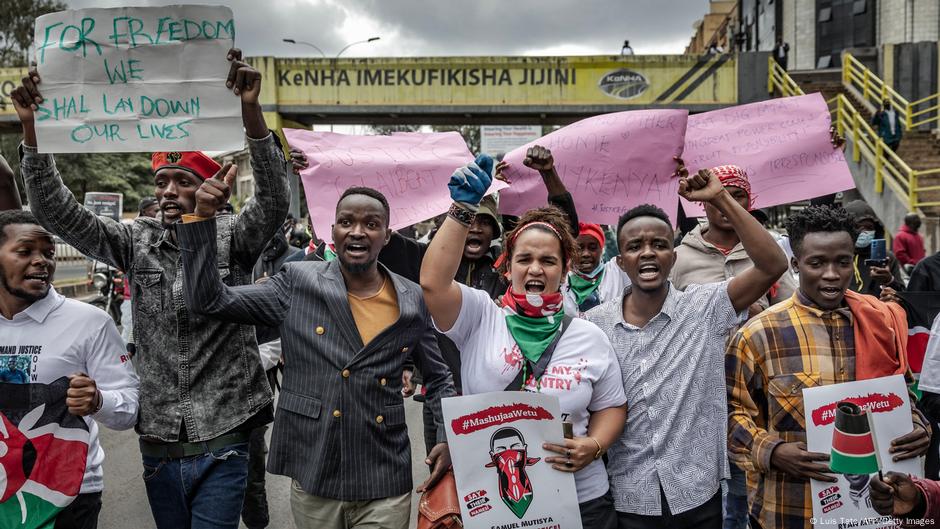
Protestatarii din Generația Z din Kenya se confruntă cu traume emoționale în mijlocul mitingurilor în curs
” alt=”A group of protestors is seen macrching in Nairobi “/>Protests have engulfed several parts of Kenya after the death of blogger Albert Ojwang in police custody in June 2025Image: Luis Tato/AFP/Getty Images
On June 25, Wendy, a young Kenyan woman, joined hundreds of demonstrators in Nairobi to protest the death of Albert Ojwang, a 31-year-old blogger and teacher who had just recently died in police custody. It was a bold decision on her part, one that came with much fear and uncertainty amid a growing government crackdown on dissent.
“Initially, I wasn’t going to show up because I was a little bit scared. They said they were targeting women this time,” Wendy told DW.
In the end, she returned home safely. But others didn’t.
At least 19 people were killed nationwide during the protests held on that day, which coincided with the first anniversary of last year’s storming of Kenya’s parliament.
‘I don’t know whether I’ll come back home’
Driven by widespread frustration over police brutality, economic hardship, and what many see as a failing government under President William Ruto, these demonstrations, which are largely led by young opposition voices who self-identify as Gen Z, have become a defining feature of the political landscape of Kenya.
But showing resistance can also take a toll on mental health. “I am completely terrified most of the time when I’m getting out of the house to go for the protests,” Wendy explained, highlighting a growing sense of anxiety among young people in the country.
Alex Mutua, another young protester, described the fear that now accompanies every demonstration and political rally, saying that “Every time I go out to fight for my country, I don’t know if I’ll be targeted by the police.”
“Going out and being part of that protest has been a really scary ordeal, considering how the police are handling the protests,” he added.
Kenya’s president tells police to shoot looters’ legs
To view this video please enable JavaScript, and consider upgrading to a web browser that supports HTML5 video
Irene Mwari, a university student and regular protester in Nairobi, agreed that the emotional price that young people have to pay keeps growing.
“Once I go to a protest in Kenya, I don’t really know whether I’ll come back home,” Mwari told DW.
Yet she feels driven by a desire to speak out against what she calls poor governance, even though each protest can become a gamble with her life.
Despite promising her parents that she would stay away from future demonstrations, Mwari admitted she has no intention of keeping her word.
“At the end of the day, we are the ones who have to live in Kenya with such bad governance. So, if we don’t fight for a better future, I don’t know who will.”
Violence and fear
The protests have grown increasingly dangerous over time. Kenya’s National Commission on Human Rights reported that 31 people were killed during the July 7 “Saba Saba” protests alone — making this the deadliest single day of rallies this year.
More than 100 were injured and 500 arrested; countless supermarkets and other businesses were looted or destroyed.
The commission has accused police of using live ammunition and collaborating with armed gangs to suppress these protests. Mwari agreed.
“If you’re lucky enough you escape being shot. The government has used guns to disrupt peaceful protests. If they don’t beat you up, you’ll get robbed in broad daylight.”
Kenya one year after the Finance Bill protests
To view this video please enable JavaScript, and consider upgrading to a web browser that supports HTML5 video
The Psychological toll
Mental health professionals in Kenya also stress that the protests are no longer just a political matter — they’ve become deeply personal and therefore are emotionally draining for many.
“We are experiencing collective trauma,” said Kenyan psychologist Benta Wambui.
“Many young protesters are experiencing chronic stress and anxiety because of repeated exposure to violence. There is also emotional exhaustion, and sometimes there can be burnout and a growing sense of hopelessness,” she added, underscoring the fact that the prolonged nature of the standoff between civilians and authorities, now lasting well over a year, can make such symptoms worse.
Geoffrey Mboya, a youth activist and community organizer, has been on the frontlines of the demonstrations from the beginning, initially getting involved in opposition movements two years ago already.
Urmărește cele mai importante știri
He said the emotional toll has changed him permanently: “[The protests have] affected me in ways that I don’t think I’ll ever fully be able to articulate,” he told DW.
“I have lost part of myself.”
Protests across Kenya, as seen here in Nakuru, are led tirelessly by the country’s youth Image: James Wakibia/SOPA Images/Sipa USA/picture alliance
A deep desire to see change
Wambui noted that even those who are not physically present at protests are affected by the overall mood.
“There’s also the weight of trauma and loss on Kenyans as a collective. So, we witnessed state brutality, people losing peers, and people losing family. Whether you knew these people or not, this can trigger grief and other PTSD symptoms as well as emotional numbness,” she explained.
But despite the trauma, many young Kenyans say they won’t stop protesting.
“Having faith that the protests will bring change is what keeps me going,” said Mutua, a sentiment echoed also by Wendy. “I really want a country that works, a country that works for me and my daughter,” she said.
However, she also admitted that she’s emotionally drained. “Some days I feel so defeated. Sometimes even feel almost useless.”
Mboya meanwhile said he is fighting two battles at the same time: one against the government, and one with himself.
“The revolution needs a whole lot of people to be a support system. We need healing to fight well,” he told DW, sharing that he has started going to therapy to address the traumatic experiences he has witnessed.
“Therapy doesn’t make the pain go away, but it helps you carry it,” he explained.
The need for healing
Wambui agreed that finding emotional support is essential for protesters to be able to continue their fight in a healthy manner. “Grief spaces can be held where people can collectively process their trauma together and have peer support systems, where people can come together and talk about the things that are ongoing, whether that’s virtual or in-person,” she said.
She also called for broader mental health education.
“It’s also important to have mental health literacy amongst the population for them to be able to recognize triggers, to recognize burnout, to recognize all these things, and to be able to get the help that they need.”
Andrew Wasike and Felix Maringa in Kenya contributed to this article
Edited by: Sertan Sanderson
Sursa: DW
-
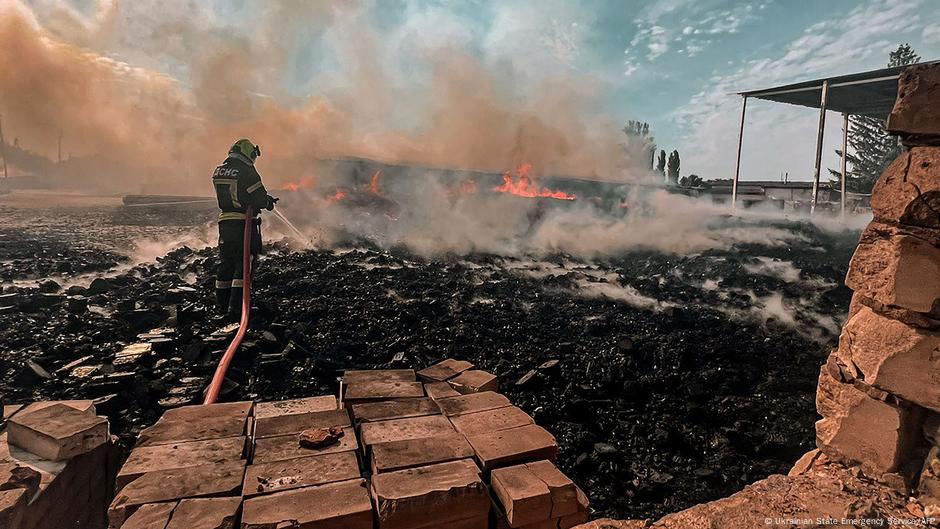
Rusia bombardează Kievul în timpul întâlnirii donatorilor Ucrainei la Roma
- Atacurile rusești asupra Kievului ucid 2 persoane și incendiază clădiri
- Cancelarul Friedrich Merz declară că Germania este gata să cumpere sisteme americane de apărare aeriană Patriot pentru a fi utilizate în Ucraina
- Rubio, președintele SUA, își exprimă frustrarea față de președintele Rusiei, Lavrov, în marja conferinței ASEAN din Malaezia
Iată cele mai recente titluri din războiul Rusiei din Ucraina din 10 iulie 2025:
Sari peste secțiunea următoare URMĂRIȚI – Reconstrucția Ucrainei trebuie să aibă loc acum 07/10/202510 iulie 2025
URMĂRIȚI – Reconstrucția Ucrainei trebuie să aibă loc acum
Sarah Kelly
În timp ce capitala Ucrainei este martora unei noi nopți de atacuri aeriene rusești mortale, eforturile internaționale de reconstrucție sunt discutate în Roma.
Urmărește cele mai importante știri
DW a discutat cu Kira Rudik, membră a parlamentului ucrainean, despre eforturile de sprijinire a Ucrainei.
Reconstrucția Ucrainei trebuie să aibă loc acum
Sursa: DW
-
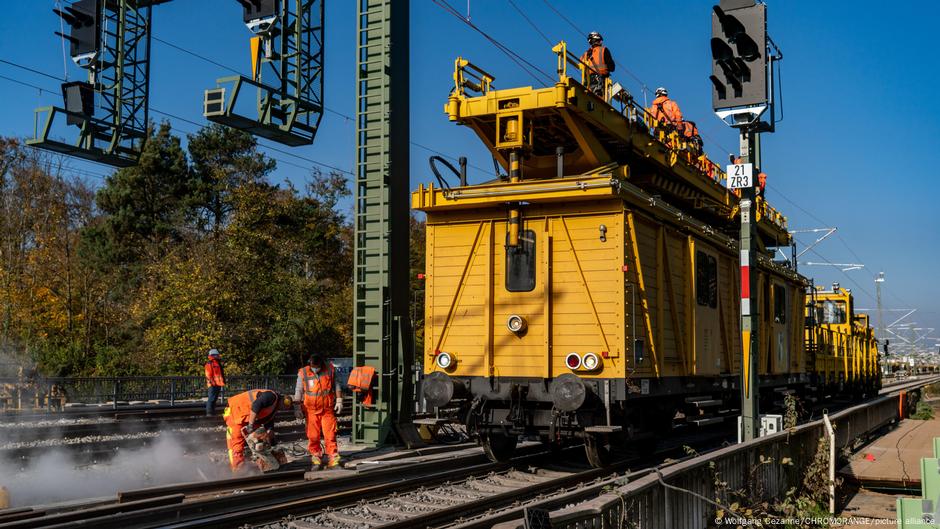
Actualizări din Germania: Operatorul feroviar solicită o amânare a modernizării
State-owned German national railroad operator Deutsche Bahn has said it wants to delay modernization plans for key routes by another year to 2036 after it previously suggested a four-year delay to 2035 in late June.
The refurbishment of more than 40 high-use railroad lines nationwide is now to take at least five years longer than was originally planned.
German carmaker Volkswagen has put a temporary stop to deliveries of its electric van model ID.Buzz to the US, a newspaper says, quoting sources at the firm as saying US tariffs were one factor in the move.
Meanwhile, spot checks put in place by Poland are causing difficulties to people living on both sides of the German-Polish border.
This blog has closed. Below, you’ll find a roundup of news, analysis and background from Germany on Thursday, July 10.
Skip next section Eastern German state of Saxony-Anhalt reports Russia-linked cyberattack07/10/2025July 10, 2025
Eastern German state of Saxony-Anhalt reports Russia-linked cyberattack
The eastern German state of Saxony-Anhalt was hit with a cyberattack that rendered several government websites inaccessible, authorities said. The websites were down briefly but are now up and running again.
Saxony-Anhalt’s Digital Affairs Ministry said the attack was a Distributed Denial of Service (DDoS) and it was launched by the pro-Russian hacker group NoName057(16).
DDoS attacks deliberately flood servers with massive amounts of traffic, rendering websites temporarily unavailable.
The digital affairs ministry said that the government has been using new technology since early 2024 to better detect and defend against such attacks.
“These technologies are currently working in the background to ensure that the state portal is accessible with minor restrictions,” the ministry said.
https://p.dw.com/p/4xHbASkip next section Germany ready to buy Patriot air defense for Ukraine 07/10/2025July 10, 2025
Germany ready to buy Patriot air defense for Ukraine
German Chancellor Merz arrived in Rome for the Ukraine Recovery ConferenceImage: Michael Kappeler/dpa/picture alliance
German Chancellor Friedrich Merz told the Ukraine Recovery Conference in Rome on Thursday that Germany is prepared to purchase US-made Patriot surface-to-air missile defense systems for Kyiv.
His pledge came as Russia continued its daily aerial bombardment of Ukraine, involving hundreds of drones and missiles.
What did the Merz say about Patriots?
“We are also prepared to purchase additional Patriot systems from the US to make them available to Ukraine,” Merz said at the conference, where air defense was discussed with Ukrainian President Volodymyr Zelenskyy and Kyiv’s allies.
The Patriot is one of the world’s most advanced air-defense systems and is capable of intercepting aircraft as well as ballistic and cruise missiles.
https://p.dw.com/p/4xHbBSkip next section Iran confirms arrest of missing Franco-German cyclist07/10/2025July 10, 2025
Iran confirms arrest of missing Franco-German cyclist
A cyclist who vanished in Iran and reportedly holds both French and German citizenship has been arrested in the country, according to Iranian officials.
Iran’s foreign minister Abbas Araghtschi told France’s Le Monde newspaper on Thursday that the young man was “arrested for committing a crime.”
The French embassy has been formally notified.
The disappearance of 18-year-old Lennart Monterlos had been announced by French diplomatic sources on Sunday. France’s Foreign Ministry said it is in contact with Iranian authorities and Monterlos’ family.
Germany’s Foreign Office said only that it is “aware” of the case.
According to a missing persons appeal posted on Instagram, his family has heard nothing from him since June 16.
France advises its citizens against travelling to Iran, accusing Tehran of taking Westerners as political “hostages.”
Germany’s Foreign Office also warns against travel, citing a “clear risk of arbitrary arrest, interrogation and long prison sentences,” and urges any Germans still in Iran to leave immediately.
https://p.dw.com/p/4xHMySkip next section BMW stays on track in rare sign of hope for carmakers07/10/2025July 10, 2025
BMW stays on track in rare sign of hope for carmakers
BMW and Mini sales in Europe jumped 10%Image: Sean Gallup/Getty Images
Munich-based carmaker BMW says it remains on course this year despite US import tariffs and weaker sales in China, according to analysts — a rare positive sign as Germany’s automotive sector remains mired in crisis.
BMW shares rose more than 4% on the news.
After a recent investor update, Metzler Bank analyst Pal Skirta said BMW still expects to hit its full-year profit margin target of 5–7% in its automotive business.
“In my view, that’s a strong signal — especially because the forecast holds firm despite ongoing tariff pressure and the challenging situation in China,” Skirta wrote Thursday.
Regionally, BMW and Mini sales in Europe jumped 10%.
In China, the group’s biggest single market, sales slid 13.7% to about 162,000 as demand stayed weak and competition stayed fierce.
In the US — where a higher 27.5% import tariff has applied since April — deliveries rose 1.4% to 98,504 vehicles.
German carmakers struggle with looming US tariffs
To view this video please enable JavaScript, and consider upgrading to a web browser that supports HTML5 video
https://p.dw.com/p/4xGuKSkip next section German police complain about bad working conditions07/10/2025July 10, 2025
German police complain about bad working conditions
Marcel FürstenauThe new border controls are adding to police officers’ overtime and stress levelsImage: Frank Hoermann/SVEN SIMON/picture alliance
Since Germany introduced border controls, police have seen their workload increase.
This adds to stress over racism, sexism and even sanitary facilities. The federal police commissioner wants solutions.
DW looks at the mounting pressure Germany’s police is under and its effect on working conditions.
https://p.dw.com/p/4xGgeSkip next section Germany blocks Kalifat website over extremist propaganda07/10/2025July 10, 2025
Germany blocks Kalifat website over extremist propaganda
Richard Connor
Germany’s Commission for the Protection of Minors in the Media (KJM) has ordered a block on the website “Kalifat” for spreading Islamist propaganda and violating democratic principles.
The German-language site threatens Germany’s free democratic order, the KJM said Thursday in Berlin. The action was initiated by the state media authority in North Rhine-Westphalia.
Despite a ban on the group behind the site since 2003, the site remained accessible in Germany. Regional media regulators have now ordered the country’s five biggest telecom companies to block it, and the orders have already been enforced.
“We oppose anyone who spreads hate and agitates against our free democracy,” said Tobias Schmid, director of the North Rhine-Westphalia state media authority, which launched the case.
KJM chair Marc Jan Eumann added: “Anyone who incites hatred against people of other faiths stands against all of us and will be stopped with every legal tool we have.”
The KJM, part of Germany’s network of state media authorities, is responsible for tackling illegal hate and extremist content online.
Germany says EU will not finance Islamist structures
To view this video please enable JavaScript, and consider upgrading to a web browser that supports HTML5 video
https://p.dw.com/p/4xGNpSkip next section German Football Association tops 8 million members for first time07/10/2025July 10, 2025
German Football Association tops 8 million members for first time
Germany’s 1954 World Cup trophy on display at the 125th anniversary celebration of the DFBImage: Hendrik Schmidt/dpa/picture alliance
The German Football Association (DFB) has surpassed 8 million members for the first time, posting a 3.86% increase over the past year.
Youngsters in general — and girls in particular — have been the driving force.
“It’s a strong sign that football in Germany continues to grow in our 125th anniversary year,” DFB President Bernd Neuendorf said on Thursday in Frankfurt.
The biggest boost came among girls under 16, where membership rose by 9%. Compared to 2021, the DFB has gained nearly a million new memberships overall.
“Our clubs provide a great service to society and our communities. That’s more important than ever in these turbulent times,” Neuendorf said.
The number of referees is also on the rise: for the first time in nearly a decade, more than 60,000 officials are active. While the share of female referees remains steady at 4.5%, the overall share of girls and women in DFB membership continues to grow.
https://p.dw.com/p/4xGsRSkip next section Western German state bans far-right AfD members from public service jobs07/10/2025July 10, 2025
Western German state bans far-right AfD members from public service jobs
Members of the far-right Alternative for Germany (AfD) party, the largest opposition party in the German federal parliament, will not be allowed to take on jobs within the public service in the state of Rhineland-Palatinate, the state government has said.
Anyone applying for a position in public service will have to declare that they are not a member of an extremist organization and have not been one for the past five years, said state Interior Minister Michael Ebling.
He said the state’s domestic intelligence agency has found enough evidence of extremist activities by the local AfD branch for the party to be put on a list of anti-constitutional bodies whose members will be banned from public service jobs.
The move by the state comes after Germany’s domestic intelligence agency, the BfV, classified the AfD as a confirmed right-wing extremist group in early May, a classification that is currently suspended during an appeal by the party.
The move has sparked a renewed debate about banning the AfD.
https://p.dw.com/p/4xFzsSkip next section Key railroad modernization projects likely pushed back again07/10/2025July 10, 2025
Key railroad modernization projects likely pushed back again
State-owned German national railroad operator Deutsche Bahn has said it wants to delay modernization plans for key routes by another year to 2036 after it previously suggested a four-year delay to 2035 in late June.
The refurbishment of more than 40 high-use railroad lines nationwide is now to take at least five years longer than was originally planned.
The modernization of German railroads is seen as urgently needed to prevent the frequent delays and malfunctions currently suffered by passengers and freight companies.
The Association of Freight Railways has said it approves of the planned further postponement of the modernization projects, saying it will allow them to be better prepared.
Last year, Deutsche Bahn successfully refurbished the line between Frankfurt and Mannheim, the first such project to be completed.
From August, the key line between Berlin and Hamburg is to be closed off for months while modernization is carried out.
https://p.dw.com/p/4xFZeSkip next section Two suspects arrested after 19-year-old woman freed from barn 07/10/2025July 10, 2025
Two suspects arrested after 19-year-old woman freed from barn
Authorities in eastern Germany have arrested two people, a 53-year-old man and a 56-year-old woman, who are suspected of holding a 19-year-old woman hostage in a barn.
Police freed the woman from the barn in the town of Vogelsberg in the state of Thuringia on Tuesday after being alerted by her calls for help during a search of a property, according to broadcaster MDR.
She was reportedly trapped in a box.
The young woman had been reported missing in Vogelsberg on Sunday, with police launching an immediate search operation, as she was reported to be on medication.
https://p.dw.com/p/4xErHSkip next section Inflation in Germany hits lowest level since October07/10/2025July 10, 2025
Inflation in Germany hits lowest level since October
Germany’s Federal Statistical Office on Wednesday confirmed that the country’s inflation rate was at 2% in June, the lowest monthly figure since October 2024.
The figure is down 0.1 of a percentage point from May.
The European Central Bank (ECB) has set a target of precisely 2% inflation for the eurozone.
In recent years, consumer prices have stabilized in Germany after the high of 8.8% inflation in late 2022 driven by the coronavirus pandemic and Russia’s invasion of Ukraine.
Germany’s central bank, the Bundesbank, has forecast inflation to remain around 2% in the coming months.
https://p.dw.com/p/4xEwlSkip next section Foreign Minister Wadephul calls on Israel to help Palestinians in need07/10/2025July 10, 2025
Foreign Minister Wadephul calls on Israel to help Palestinians in need
German Foreign Minister Johann Wadephul has called on Israel to save “hundreds of thousands” of Palestinians in the Gaza Strip from dying of starvation and to give them the aid they need.
“That is Israel’s obligation. International aid organizations must immediately be granted comprehensive access to be able to bring humanitarian aid to the people,” he said on Thursday before traveling to Vienna, Austria, where he was to meet his Israeli counterpart.
Wadephul also called on the Palestinian militant group Hamas to lay down its arms and to release any hostages it is still holding in the Gaza Strip.
He said Palestinians needed to have a future in the Gaza Strip, West Bank and East Jerusalem for there to be a long-lasting peace, but that it should be without Hamas as rulers in Gaza.
“Never again must a massacre like that on October 7, 2023, be conducted,” he said, referring to Hamas-led raids in southern Israel on that date in which some 1,200 people, most civilians, were killed and around 250 hostages taken.
Israel responded to the attacks with an offensive in Gaza against Hamas in which more than 57,000 Palestinians have so far been killed, according to figures provided by authorities in the Hamas-run enclave.
https://p.dw.com/p/4xEWgSkip next section Australia police continue search for lost German backpacker07/10/2025July 10, 2025
Australia police continue search for lost German backpacker
Western Australian police released this picture of Carolina WilgaImage: Western Australia Police/Handout/dpa/picture alliance
Police in Australia have issued a public appeal for help as they continue their nationwide search for a 26-year-old German woman who went missing more than a week ago while backpacking in the state of Western Australia.
Carolina Wilga was last seen on June 29 at a general store in the small agricultural town of Beacon, situated to the northeast of the state capital, Perth.
“Carolina departed that area about five minutes later and has not been seen or heard from since,” homicide squad detective senior sergeant Katharine Venn told reporters.
Venn said Wilga had planned to travel into remote areas of the state but also to the eastern coast, meaning that the search needed to cover a huge area.
She said there was so far no evidence that a third party was involved in the disappearance, but that all lines of inquiry were being followed.
Police said Wilga has spent two years in Australia backpacking and working at mine sites in Western Australia.
The West Australian daily later reported that a van belonging to Wilga had been found unattended near Karroun Hill, some 300 km (186 miles) northeast of Perth.
The paper said that the vehicle appeared to have suffered mechanical issues.
https://p.dw.com/p/4xEL8Skip next section READ: Border checks make life difficult at German-Polish frontier07/10/2025July 10, 2025
READ: Border checks make life difficult at German-Polish frontier
Monika Stefanek
Residents living at the border between Germany and Poland have long been used to traveling freely and easily between the two countries.
But now, Poland has introduced spot border checks, following a similar move by Germany in October 2023.
And although authorities promised that EU nationals would not suffer inconvenience, people in the region say otherwise, as this report from DW describes: German-Polish border checks: ‘They make our life difficult’
Poland starts border controls at border with Germany
To view this video please enable JavaScript, and consider upgrading to a web browser that supports HTML5 video
https://p.dw.com/p/4xEFnSkip next section VW puts temporary stop to US deliveries of ID.Buzz07/10/2025July 10, 2025
VW puts temporary stop to US deliveries of ID.Buzz
German carmaker Volkswagen is currently not delivering its ID.Buzz model to the US, according to the daily Handelsblatt.
The paper cited sources at the company as saying that the high tariffs imposed by the US Trump administration were one reason for the cessation of deliveries, along with a recall because of the dimensions of the electric van’s third-row seat.
Two people at the company said the tariffs of 27.5% imposed by the US in April on imports of new cars constructed in Europe had been a factor in the move. Previously, tariffs of just 2.5% had been in place.
The ID.Buzz has also faced a recall by the US National Highway Traffic Safety Administration (NHTSA) because its third-row seats do not meet US federal safety standards. These require seats of that size to have three seatbelts rather than the two currently fitted.
VW is reportedly responding to the recall by reducing the size of the seats.
On Wednesday, VW said its total vehicle deliveries to North America had fallen almost 7% in the first half of the year, although overall deliveries worldwide had risen by 1.3%.
https://p.dw.com/p/4xEFZShow more postsRichard Connor Reporting on stories from around the world, with a particular focus on Europe — especially Germany.Timothy Jones Writer, translator and editor with DW’s online news team.Send us your feedback
Sursa: DW
